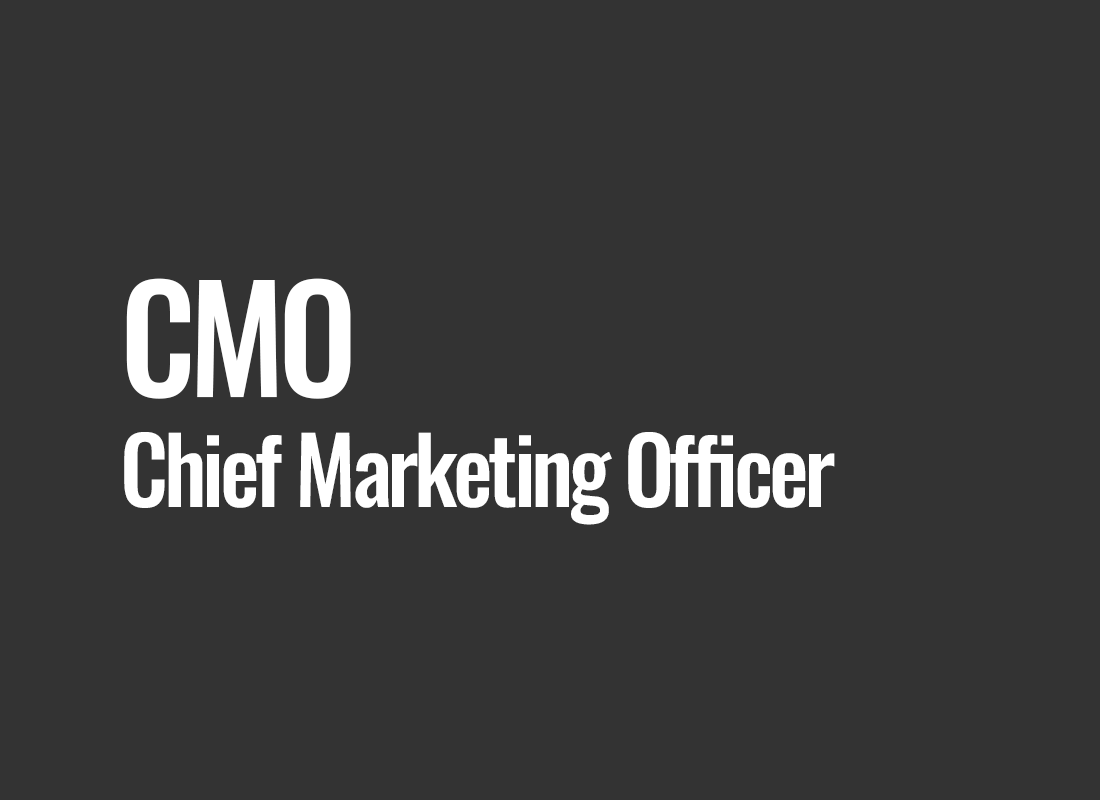CMO (Chief Marketing Officer)
Chief Marketing Officer (CMO) is not just a professional title; it is the role of a strategic leader who shapes the face of marketing activities in the era of e-commerce, technological innovations, and rapidly changing consumer preferences. In today's business world, where competition is fierce and customer attention is a treasure, the role of the CMO becomes crucial for the organization's success. The CMO is not only a specialist in advertising campaigns; they are the architect of strategies, creator of valuable content, data analyst, and team leader who combines business skills, creativity, and agility in adapting to new trends.
At the helm of the marketing department, the CMO not only defines goals but also charts the path to achieve them. They are responsible for formulating a cohesive brand narrative, building its image, and shaping relationships with customers. The diversity of CMO responsibilities reflects the modern reality where marketing is not only about television or print ads but also about complex online strategies, data analysis, and understanding consumer psychology.
Strategic Marketing Planning
The CMO serves as the chief architect of marketing strategy, which includes setting goals, identifying target markets, and developing effective campaigns. They collaborate with the marketing team and other departments of the organization to create a consistent brand narrative based on market analysis and consumer data. In the era of e-commerce and a dynamic business environment, the ability to flexibly respond to changing market conditions is a key element of effective planning.
Team Management
Effective team management is one of the key tasks of the CMO. They are responsible not only for recruiting talents but also for motivating, developing professionally, and ensuring the efficiency of the team. Leading a team of marketing specialists, data analysts, or UX designers, the CMO creates an atmosphere of creativity and collaboration, essential for achieving ambitious marketing goals.
Data and Trend Analysis
In the digital age, data analysis is a crucial element of effective marketing strategy. The CMO must be versed in Business Intelligence, adept at using analytical tools, and transforming data into practical strategic insights. The ability to understand market trends and predict changes is crucial for the effective implementation of marketing activities.
Technological Orientation
Familiarity with modern marketing tools and technologies is essential for the CMO. From building websites to utilizing artificial intelligence in content personalization, the CMO must stay current with the latest technological trends. This enables the effective adaptation of marketing strategies to the dynamic online environment.
Content Marketing Campaigns
Creating and managing content marketing campaigns is a key area of responsibility for the CMO. In a world where customers expect valuable content, the CMO must be creative and flexible, delivering content that captures attention, builds trust, and engages audiences.
Marketing Budget Management
Effective allocation of the marketing budget is a significant challenge. The CMO must skillfully balance between different marketing channels, analyze return on investment (ROI), and adjust the strategy based on financial data. Efficient budget management directly impacts the achievement of marketing goals.
Partnerships and Business Relationships
Establishing strategic partnerships is a crucial element of company development. The CMO must be able to build business relationships, negotiate collaboration terms, and identify opportunities for synergistic actions. Collaboration with other companies can expand the brand's reach and bring benefits to both parties.
Adaptation to Changing Consumer Trends
Understanding and adapting to changing customer preferences and expectations are indispensable elements of the CMO's role. Monitoring consumer trends, analyzing consumer behavior data, and swiftly responding to changes are crucial for maintaining the brand's competitiveness in the market.
In the context of these areas of responsibility, the Chief Marketing Officer becomes a key player, shaping the brand's image, building customer relationships, and driving the organization's success in the world of e-commerce, marketing, business, and technology. Let's now take a closer look at specific aspects of content marketing campaigns, budget management, business partnerships, and adaptation to changing consumer trends.
Summary
In a world of dynamic changes and an ever-evolving business landscape, the role of the Chief Marketing Officer becomes a key element of organizational success. By fulfilling the role of the chief architect of marketing strategy, the CMO not only adapts to changing market conditions but also shapes them, setting new trends and standards. With skills in strategic planning, team management, data analysis, and technological orientation, the CMO becomes an undisputed leader, creating cohesive narratives that capture attention and build customer loyalty.
In summary, the role of the Chief Marketing Officer is not just a job position; it is a mission. A mission that encompasses not only effective management of today's challenges but also the creation of the future. For those who take on the challenge of being a CMO, doors open to endless learning, innovation, and influence in the business world. It is not just about defining the brand's image but also about shaping its future.




